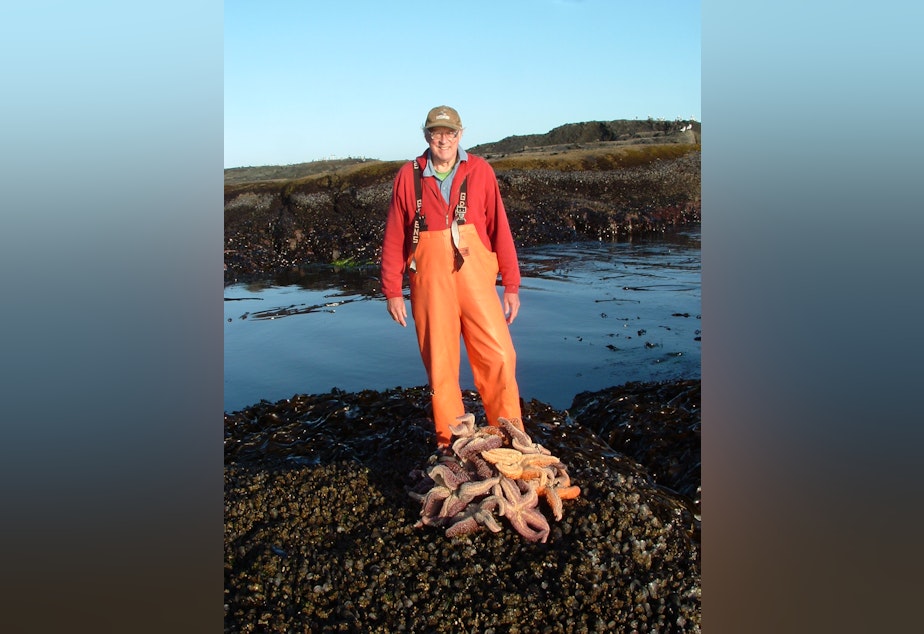Retired UW Professor Wins International Cash Prize For Ecology Work

Ecologists worldwide credit the work of a University of Washington biology professor for advancing the way we understand the importance of so-called “apex species” in nature. Now Professor Emeritus Robert T. Paine’s work is being recognized with Japan’s International Cosmos Prize this year.
The prize honors efforts that promote the harmonious coexistence of nature and mankind. It carries an award of 40 million yen. In today’s exchange, that's worth about $408,000.
Now 80, Paine has been retired from the faculty for 15 years. He says that his experiments have changed the way ecology is studied.
It basically jump-started ecology from a descriptive science, with a lot of work cataloging what’s in nature, to an experimental science. The odd thing is, this all started with a rather obvious, time-consuming experimental removal of starfish from a very small piece of Washington’s coast.
The starfish was an apex predator, and when I kept it out other organisms took over. That changed the nature of the system. It was something that could be measured quite easily.
So I and a few others basically took experimental manipulation into the field, showed it revealed really strong interactions, and these interactions then shape what we see out there.
Because of that we understand a great deal more about the structure of nature, what motivates and drives the patterns that we can observe, how they change with time and from place to place.
He says he found out about the award in July when he stopped by his UW office.
Sponsored
I actually came in on a weekday with one of my daughters. I go to my mailbox, and there’s a fax there. She said, 'Dad, you’ve won a prize!' So I trot upstairs like a dutiful citizen of biology to report to both the chairman and a woman who basically handles external communications with the university. I said, you’re sworn to secrecy, and they honored that.
They had to keep that secret for about a month. While that may seem like an eternity for some people, Paine says it was not difficult for him.
Well, I’m basically rather bashful about these sorts of things, and I didn’t want all the hoopla. I can’t say it’s ruined my life, but I’ve spent the last three or four days simply responding to the flood of emails.
And, he's making plans for the money.
Unfortunately, I will probably pay a large fraction to support our war effort in Afghanistan, which I totally disapprove of. I’ll give each of my daughters whatever I’m legally allowed to give them. I will contribute some fair fraction of that to a small endowment I’ve set up in the UW biology department for supporting field experimental ecology of any sort. Whatever the change is, $400,000 is a round guess. But if the yen improves I’ll get more. If it drops I’ll get less.
Sponsored
But he says he's not planning on buying expensive toys, like a sports car or a fancy vacation for himself. “None of that. I’ll just set it aside.”
Paine will collect his International Cosmos Prize this November in Japan. His three daughters will join him on the trip and are looking forward to meeting the Emperor of Japan.
